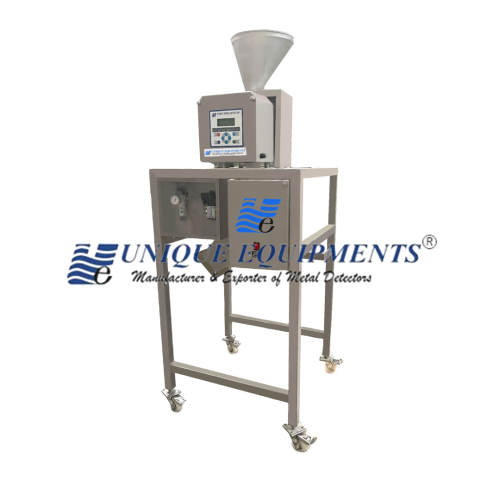Looking for Flexible Financing? Consider a DSCR Mortgage Loan
In the realm of home buying and real estate investment, success and financial freedom depend on obtaining the correct kind of financing. Although many people know about conventional mortgages, there are various choices accessible that can have better terms and fit particular circumstances. One such choice is the DSCR mortgage loan, a specialist loan that might revolutionize investors or housebuyers searching for a more flexible approach to paying for their house purchases.
The DSCR mortgage loan could be the ideal fit for you if you have been finding it difficult to satisfy the criteria for conventional loans or if you are seeking an investment property financing choice that more fits your income flow. This tutorial will go over the main features of DSCR mortgage loans, their benefits, and their working principles, thereby providing an understanding of why they can be a good fit for you.
What is a DSCR Mortgage Loan?
A DSCR mortgage loan—Debt Service Coverage Ratio—is a kind of loan where your income or credit score is secondary to the income the property you intend to buy generates. DSCR, or the annual income to debt ratio of a property, is what lenders assess instead of the borrower’s financial situation—that is, the possible rental or commercial income the property can create.
Lenders in conventional mortgage loans mostly depend on the borrower’s credit score, income, and financial background. DSCR mortgage loans handle things differently, though. Real estate investors—especially those buying rental properties—often use these loans since the emphasis is on the property’s capacity to pay for its debt commitments and expenses.
If you own a rental property and the rent you get is enough to pay the monthly mortgage, insurance, taxes, and other related expenditures, for instance, you can be qualified for a DSCR mortgage loan without proving notable personal income or a good credit score. This can offer great flexibility, particularly for those trying to broaden their portfolios.

How Does a DSCR Mortgage Loan Work?
Understanding a DSCR mortgage loan comes mostly from its reliance on the income of the property rather than the borrower’s income. DSCR is computed by dividing total yearly debt payments for a given property by its annual net income—after expenses.
The DSCR would be 1.33 ($24,000 ÷ $18,000), for instance, if a rental property brings in $24,000 a year and the overall debt payments—mortgage, taxes, insurance, etc.—equal $18,000 annually.
While a DSCR ratio of 1 indicates that the revenue of the property is equal to its debt obligations, a ratio above 1 indicates the property is generating more income than required to cover the debt, therefore reducing the risk of the loan to the lender. Conversely, a DSCR less than 1 suggests that the property is not making enough money to pay down the debt, which would be concerning to lenders.
Usually requiring at least 1.0, the DSCR mortgage loan depends on the lender and the details of the property, so this criterion could change. A higher ratio demonstrates investors could be eligible for better lending arrangements, including cheaper interest rates or bigger loan amounts.
Who Can Benefit from a DSCR Mortgage Loan?
For many different kinds of borrowers, especially real estate investors or those wishing to buy rental properties, a DSCR mortgage loan is perfect. The following groups most stand to gain from this kind of loan:
1. Real Estate Investors
Those who concentrate on buying rental properties can use a DSCR mortgage loan to help with their acquisitions of real estate. This kind of loan is based on the earning potential of the property, hence investors can get financing without having great income or perfect credit. The loan’s adaptability lets investors buy real estate that consistently produces rental revenue, therefore strengthening their portfolio over time.
2. Self-Employed Individuals
DSCR mortgage loans also help self-employed people with irregular income or who find it difficult to qualify for conventional loans because of changing revenue sources. Self-employed people might avoid the difficulties of proving consistent income or supplying comprehensive documentation since lenders pay more attention to the income of the property than to the borrower’s income.
3. Those with lower credit scores borrowing
DSCR mortgage loans offer a substitute approach for qualifying for financing for people with poor credit scores. While DSCR loans concentrate on the income-generating capacity of the property, providing a road to financing even with a lower credit rating, traditional loans sometimes demand better credit ratings to get approval.
4. Buyers Looking for Investment Properties
DSCR mortgage loans offer a wonderful choice for financing whether your purchase is of a single-family rental house, multi-family apartment, or commercial real estate. This loan is especially meant for people who want to buy real estate that would bring income and help with their bills.
The Benefits of a DSCR Mortgage Loan
For real estate investors particularly, there are various advantages to selecting a DSCR mortgage loan for property finance. Among the main benefits are:
1. Flexible Qualification Criteria
The DSCR mortgage loan’s greatest appeal is that it offers more flexible qualifying criteria than conventional loans. Borrowers with less than excellent credit or self-employed people can still get financing since the loan is based on the earning potential of the property. For those who might otherwise find it difficult to qualify for conventional mortgages, this creates chances.
2. No Personal Income Verification
DSCR mortgage loans do not demand proof of personal income unlike conventional loans, which call for thorough documentation of financial history and personal income. This speeds up and simplifies the loan application procedure, especially for borrowers without a consistent income or conventional means of income.
3. Faster Loan Processing
The emphasis on property income instead of personal financial records results in often faster approval and processing periods for DSCR mortgage loans than for conventional mortgages. For investors wishing to immediately seize fresh prospects and guarantee prompt funding for properties, this is a major benefit.
4. Potential for Multiple Properties
DSCR mortgage loans concentrate on the revenue produced by the property, hence investors can buy several properties using this financing source. Investors can grow their real estate portfolios and more readily scale their investments as long as every property satisfies the necessary DSCR.
How to Apply for a DSCR Mortgage Loan
Although the process is usually more simplified than with conventional loans, applying for a DSCR mortgage loan consists of multiple steps. Applying for a DSCR loan follows these fundamental guidelines below:
Step 1: Identify the Property
Make sure the property you are interested in could create enough revenue to meet the debt obligations before seeking a DSCR mortgage loan. Lenders will evaluate the cash flow of the property, so it is crucial to know exactly the rental income or commercial revenue the property may produce.

Step 2: Gather Property Documentation
You will have to send the lender documents on the property including income statements, running expenses, and rental agreements. Using this data, the lender will ascertain the DSCR of the property and decide on loan terms.
Step 3: Submit the Application
Apply to the lender after you have the required paperwork. Although the DSCR mortgage application procedure is usually faster than that of conventional loans, it is still advisable to make sure you have all the necessary records and data ready.
Step 4: Wait for Approval
After looking over your application, the mortgage lender will figure out the DSCR and decide whether you are loan-qualified. Should approval be granted, you will be able to proceed in completing the loan and acquiring the house.
Conclusion
A DSCR mortgage loan presents a flexible and easily available choice for first-time buyers looking for financing for income-producing properties or real estate investors. These loans give chances to people with different income levels or credit scores to invest in real estate and create wealth by emphasizing the income created by the property instead of the borrower’s financial status.
The DSCR mortgage loan provides the flexibility and accessibility you require whether your business is self-employed, you wish to increase your investment portfolio, or you require a more relaxed qualifying criteria process. Knowing how these loans operate and their advantages can help you decide how best to fund your real estate purchases and meet your financial needs.













Post Comment